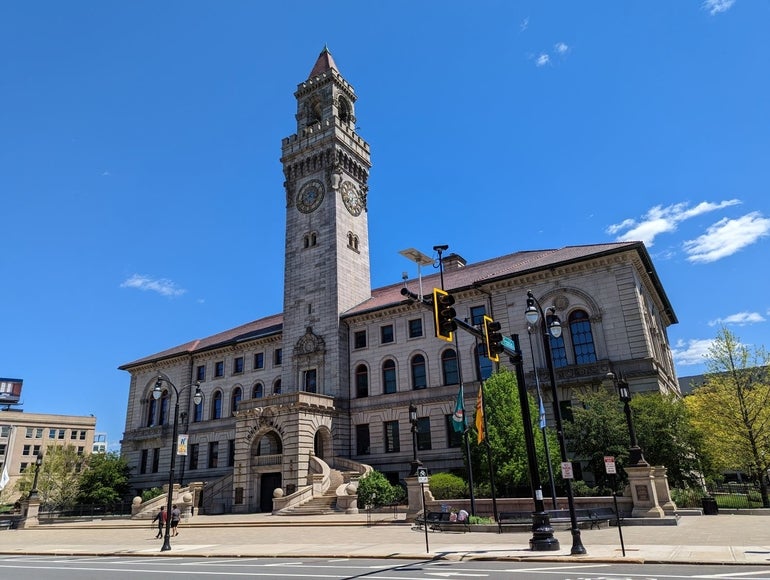Worcester voters will be prompted with a non-binding ballot question in November asking them if the city’s private colleges and universities should be required to invest 0.5% of their endowment on an annual basis into a community impact fund.
The ballot question, passed unanimously during Tuesday’s Worcester City Council meeting, was proposed by District 2 Councilor Candy Mero-Carlson after land purchases by nonprofit higher education institutions which took those properties off the City’s tax roll. This includes Worcester Polytechnic Institute’s purchase of two hotels in September.
While saying her proposal was not a slight to any of the city’s private colleges and universities, Mero-Carlson said $1.8 million in tax revenue was lost as a result of those land purchases.
“At the rate that this is going, this City can not sustain what’s happening with our colleges and universities,” Candy Mero-Carlson said.
Both Mero-Carlson and Mayor Joseph Petty insisted these proposed mandatory payments to the city government are not a tax.
“I thought this was a good idea in the sense that, it’s not a tax, we’re asking for an investment in the future of the City of Worcester,” Petty said.
As of the second quarter of 2024, Worcester Polytechnic Institute, Clark University, College of the Holy Cross and Assumption University had a combined endowment of $2.23 billion, with Holy Cross accounting for $1.04 billion of that total, according to data provided to the WBJ Research Department.
In response to a question from District 3 Councilor George Russell, City Solicitor Alexandra Kalkounis said action would need to be taken by the state legislature in order for the City to have the ability to compel colleges and universities to pay into the fund.
“It would have to be a negotiated deal, the City can’t compel colleges to make payments,” Kalkounis said. “It would have to be an exemption of the current law.”
Worcester had seven active payment-in-lieu of tax agreements as of April 2024, resulting in $1.7 million in revenue, according to the Worcester Regional Research Bureau, with 90% of those funds coming from agreements with educational institutions. PILOT payments are typically made by nonprofits like college and hospitals as a way to account for their community impact since their property holdings are tax-exempt.
The council also backed proposals by Mero-Carlson to ask local colleges to appoint more Worcester residents to their boards, to meet on an annual basis with the city manager, and for the council to consult with WRRB and Greater Worcester Community Foundation to study how other municipalities have implemented community impact fees with universities.
Eric Casey is the managing editor at Worcester Business Journal, who primarily covers the manufacturing and real estate industries.

